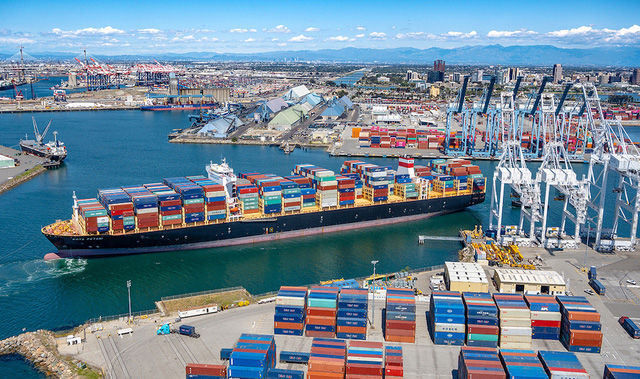Viet Nam seeks FIATA support to weather sea freight rising costs
VGP - Viet Nam suggests the International Federation of Freight Forwarders Associations (FIATA) support Vietnamese businesses to overcome difficulties caused by rising costs of sea freight, port congestion and lack of empty containers.

Minister of Industry and Trade Nguyen Hong Dien made the above suggestion in his letter addressed to FIATA President Turgut Erkeskin.
In the letter, Nguyen wrote that from the beginning of 2024, the increase in container shipping rates, congestion at some Asian ports and lack of empty containers have impacted Viet Nam's import and export goods.
Therefore, he suggested the association share experience and solutions that FIATA members have been applying, especially for handling additional charges collected at ports.
He called on the FIATA to highlight Viet Nam's position in the global value chain to have appropriate priorities for vehicles and equipment to transport import and export goods for the Vietnamese market.
The association should assist the Vietnamese Government in its strategy of positioning Viet Nam as a goods production center and a new international transit hub for Asia, he recommended.
Especially, he emphasized the need to authorize Vietnamese organizations to participate in FIATA training and certification to contribute to training professional human resources with high access to international markets.
The Ministry of Industry and Trade will direct export industry associations and businesses in the field of logistics to connect, work closely, and timely propose plans to minimize risks and losses, Nguyen said.
Thanks to the support of the FIATA, Viet Nam will continue making worthy contributions to enhancing the role and position of FIATA, while the association will effectively help the nation integrate into the world logistics market, the minister added.
Earlier, on July 9, at the meeting between Prime Minister Pham Minh Chinh and Turgut Erkeskin, Pham proposed FIATA provide Viet Nam's logistics sector with workforce training through expanded training and capacity building program.
Praising Viet Nam's logistics development strategy for the 2025-2035 period with a vision to 2045, especially its focus on digital transformation, green transition, and achieving net-zero emissions by 2050, Turgut Erkeskin said Viet Nam holds significant potential to emerge as a global and regional logistics hub, and suggested the pooling of all social resources to achieve this goal.
According to the World Bank's report released in 2023, Viet Nam placed 43rd out of 160 examined countries and territories in the logistics performance index. It was also among the top five ASEAN countries with a growth rate ranging from 14-16 percent.
Viet Nam is an export-oriented economy. In the first half of 2024, the country's total import and export value reached US$369.62 billion, an increase of 16 percent over the same period last year./.
